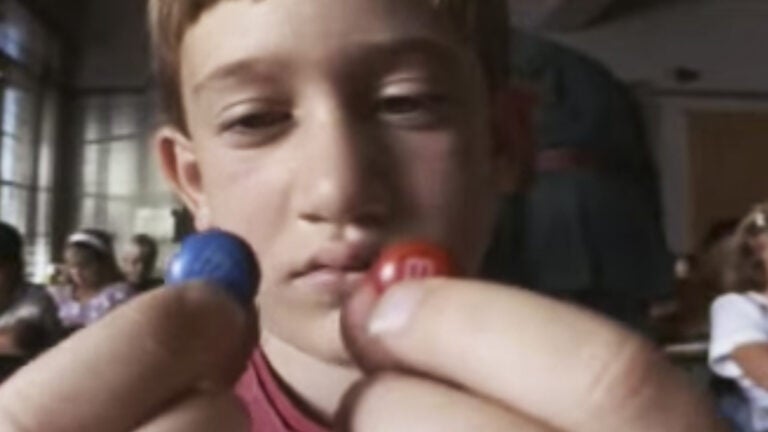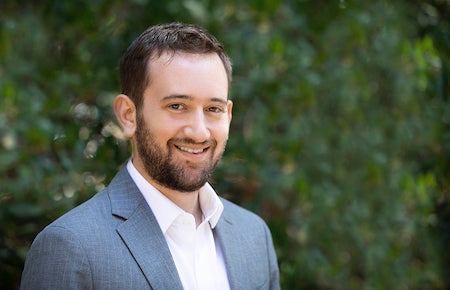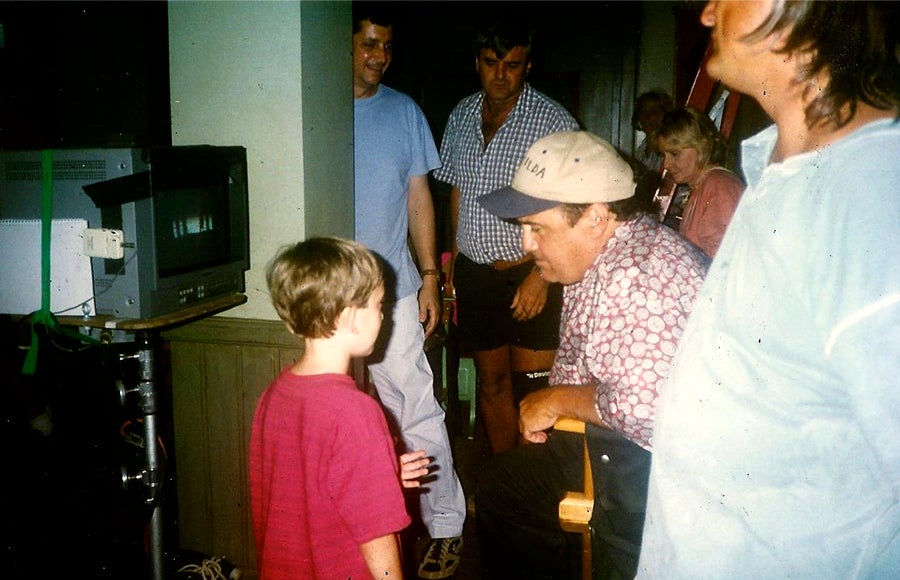
Whatever became of Julius Rottwinkle?
As a child, Leor Hackel starred in the successful film adaptation of Roald Dahl’s popular children’s book Matilda, about a gifted little girl who is neglected and bullied by her parents, but develops powers of telekinesis to defeat her enemies. Hackel played Julius Rottwinkle, a fellow student at Matilda’s school, Crunchem Hall Elementary, who is thrown out of the window by the evil principal, Miss Trunchbull, for the terrible sin of eating two M&Ms in class.
Now, more than 20 years later, Hackel has returned to the classroom in a rather different role: as an assistant professor of psychology at USC Dornsife College of Letters, Arts and Sciences.
How did the child actor metamorphose into a professor?
All the world’s a stage
Born in Honolulu, to a broadcast journalist and a sociology professor, Hackel moved to Los Angeles with his parents when he was 18 months old. Once here, he lost no time becoming what he describes with a laugh as “that L.A. stereotype — a child actor.”
He got his start in the acting world after successfully auditioning for a commercial for the National Education Association. “From there they sent me to an agent, and I spent the next 10 years or so going on auditions periodically.” When Matilda came up, the 7-year-old Hackel auditioned and won the role of Julius.
He still has fond memories of making the movie, directed by and starring Danny DeVito.
“It was a ton of fun,” Hackel says. “There were lots of kids on the set and Danny DeVito was incredibly nice and fun to work with. Pam Ferris, the actress who played Miss Trunchbull, as scary as she is on screen, was also delightful and sweet.”
After his success in Matilda, Hackel was keen to make acting his career. In high school, he concentrated on theatre. He continued acting in college and began directing plays.
“I really loved that and thought I would be an actor until midway through college,” Hackel says. However, something else was vying for his attention: the classes he was taking in neuroscience and psychology.
“That had always been something that I was very interested in,” he recalls. “Somewhere along the way, I began to get more excited about it and more and more invested in it, until it just seemed like the natural next step.”
Indeed, as his fascination with neuroscience and psychology took over from his love of acting, Hackel realized that not only did it feel like a natural progression but that there was a big overlap in his interest in theatre and in his interest in psychology.
“Part of it was trying to understand the human condition and ask what it means to be human,” he says. “As an actor you’re constantly thinking about how people think, and what’s motivating my character right now. To me, moving from acting to psychology gave me a sense of moving from this subjective artistic exploration of that question to a more objective and scientific exploration.”
Merging two traditions
Hackel’s research focuses on how we learn about other people and make decisions about social interaction — whom we should partner with, whom we should become closer to and whether we should cooperate with, reciprocate or help others. To do that, his work tries to merge two traditions in cognitive science.

Social psychologists have been traditionally concerned with how we form impressions of other people, think about their mental states and empathize with them, or categorize ourselves into social groups — in short, how we think about the social world and how we think about ourselves.
Cognitive neuroscience research has looked at how we learn about the world by making choices and experiencing rewards, and then making new decisions based on the value that we expect to gain. Asking “How do rewarding experiences reinforce our actions?” often involves computational models of cognition that can then be linked to brain activity.
“My work aims to merge those approaches,” Hackel says, “asking how we learn about the social world by making choices and experiencing feedback and using computational models to link this social learning to the brain.”
Hackel is currently working on understanding how people learn from instances of positive and negative social feedback from other people. He is particularly interested in applying this research to better understand mental health, examining how learning might track with symptoms in some psychological disorders like borderline personality disorder.

His research also explores how people’s identification with a group or the social norms around them lead them to value and decide how to contribute to a wider public good — for example, a coordinated response to climate change, which would require the participation of many people to be effective.
Bicoastal life
Hackel has been bouncing back and forth between coasts for the last decade. After a childhood spent in L.A., he went to New York for college, earning his undergraduate degree from Columbia University and his graduate degree from New York University. He returned to California for his postdoctoral work at Stanford University, then briefly moved back east for a position at Rutgers University before joining USC Dornsife this fall.
Hackel has no regrets about abandoning the world of acting for the world of academia, but he admits he does sometimes miss his former career. With two young children, he says he no longer has time to act, even as a hobby.
In the meantime, he acknowledges that he can apply skills he learned as an actor to his current job as a professor, particularly in the classroom.
“Speaking in front of a crowd and getting used to that as an actor has been helpful for teaching,” Hackel says. “I’ve seen improv classes offered to faculty at several different institutions, and I can see why.”